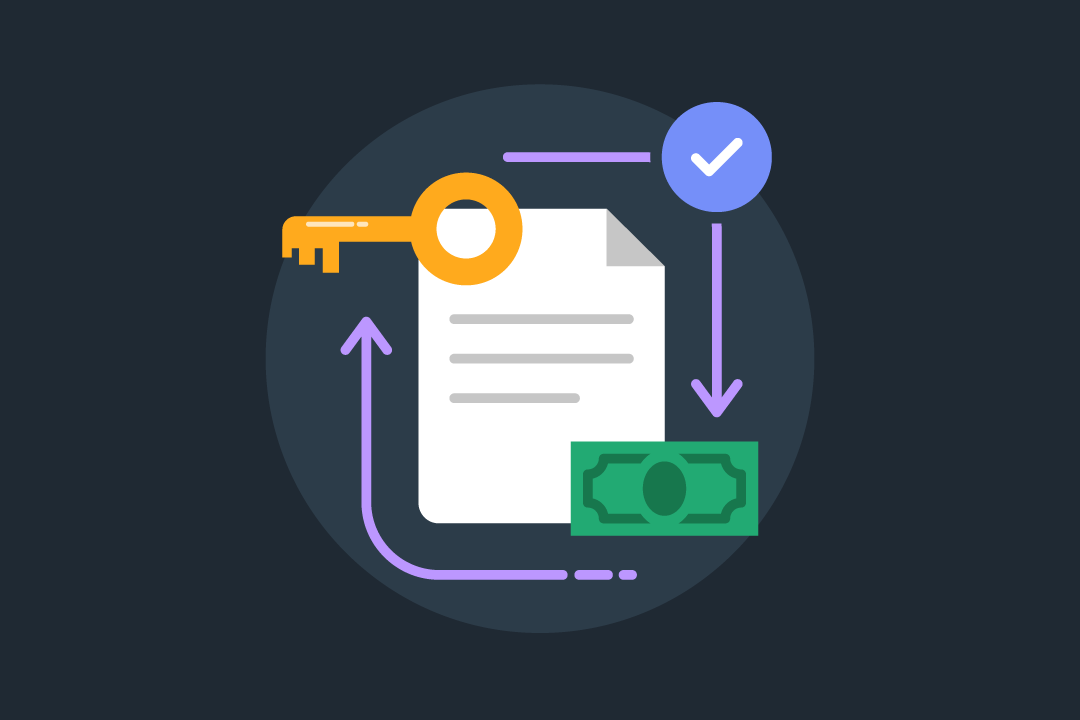5 Times a Medicare Patient Can't Pay Cash
There are significantly more times when PTs, OTs, and SLPs cannot accept cash from an Medicare patient than can.

Subscribe
Get the latest news and tips directly in your inbox by subscribing to our monthly newsletter
With declining reimbursements—and ever-increasing documentation and reporting requirements—it’s no wonder so many rehab therapists are stepping out of contracts with third-party payers to pursue a cash-pay business model. And given that many Medicare patients could benefit from rehab therapy (hello, baby boomers), it would be lovely if Medicare made it easy for cash-pay providers to serve those beneficiaries. Unfortunately, though, compared to instances in which you can accept cash from a Medicare patient, there are significantly more times when you can’t—including the following:
1. When you’re providing covered services and you have no relationship with Medicare (or you’re a Medicare participating provider).
Unfortunately, rehab therapists are not allowed to opt out of Medicare, which means that in order to provide Medicare-covered therapy services to Medicare patients, rehab therapists must have a contractual relationship with Medicare. As Meredith Castin explains in this blog, that relationship will be as either a participating provider or a non-participating provider. As a participating provider, you may not accept payment directly from Medicare beneficiaries for services that Medicare covers (although you may still collect standard deductibles and copays). Instead, you’ll receive reimbursement for your services directly from Medicare. As a non-participating provider, you may accept cash for covered services, but you also must submit claims to Medicare, so that Medicare may reimburse the patient directly.
2. When you didn’t execute an ABN prior to performing a usually covered service.
Speaking of Medicare-covered services: Medicare requires that providers use Advance Beneficiary Notices of Noncoverage (ABNs) to communicate financial responsibility to patients for services that Medicare usually covers, but may not for a particular patient (i.e., because the service doesn’t meet Medicare’s definition of medically necessary). Once you have a signed ABN on file, you’ll bill Medicare using a GA modifier to trigger a claim denial—at which point you can collect from the patient. However, if you fail to provide your patient with an ABN prior to delivering the service—and Medicare denies the claim—you may not go back to the patient to collect. Instead, you’ll have to write off the claim and take the hit. As such, it may seem prudent to issue all Medicare beneficiaries pre-emptive ABNs. However, that is strictly prohibited; providers can only issue ABNs to patients when it is appropriate to do so. To learn more about ABNs, check out this post.
3. When Medicare doesn’t pay a claim in full.
In certain situations—with certain payers—you may be able to balance bill patients if their insurance company only provides partial payment for a service. However, that is not the case for Medicare beneficiaries. As WebPT’s Kylie McKee explains in this blog on balance billing, “if you accept Medicare or Medicaid patients, you must accept reimbursement from Medicare or Medicaid as payment in full. If you attempt to bill any Medicare or Medicaid patient for the remaining balance, it could land you in some major hot water, as you’d be violating the terms of your Medicare Provider Agreement—and you could even be subject to sanctions.” In other words, what Medicare pays is what you get. That being said, if you’re a non-participating provider, “you can charge more than the Medicare-approved rates—up to what CMS dubs ‘the limiting charge,’” Castin explains. But, you still have to issue an ABN and submit a claim to Medicare in order to collect any of the billed amount from the patient.
4. When you provide medically necessary maintenance care.
As cash-pay practice owner Jarod Carter, DPT, explains in this post, up until 2013—and the Jimmo vs. Sebelius case—most providers assumed Medicare would not pay for maintenance therapy, even if it was medically necessary. Thus, those providers got into the habit of charging patients out-of-pocket for maintenance services. Since then, Medicare has clarified that it does, indeed, cover maintenance care as long as it can only be delivered by a skilled, licensed therapy provider (in other words, CMS still won’t cover services if, say, a personal trainer could provide the same benefit). So, what does this mean for billing? Providers must submit claims to Medicare for medically necessary maintenance care—just as they would for therapeutic care. Whether or not they can collect payment from patients depends on their contractual relationship with Medicare (as discussed above).
5. Whenever a Medicare patient wants to pay cash for a covered service.
This one is a little murky thanks to language in a 2013 HIPAA update that enables patients to—of their own free will—request that a provider not submit their claims to Medicare. According to the update, “In such cases, a Medicare provider is not required to submit a claim to Medicare for the covered service and may accept an out of pocket payment for the service from the beneficiary.”
Some providers interpreted this to mean that they could collect cash from Medicare beneficiaries for covered services as long as the patient:
- agreed to pay cash, and
- requested that the provider not submit claims to CMS.
However, others (and their legal counsel) believe this interpretation doesn’t fully consider the spirit of the whole “free will” portion of the law. As we explain in this blog “this article from cash-based PT Dr. Jarod Carter covers this ‘loophole’ more in depth. In Dr. Carter’s opinion, ‘physical therapists could be putting themselves at risk if their standard policy with Medicare beneficiaries is to present them all with paperwork stating that they refuse to allow the physical therapist to submit claims to Medicare,’ which is an opinion we share.”
All that said, we highly recommend reading the rule in full and reaching out to your own legal counsel to determine the best course of action when individual Medicare patients outright request to pay cash. You can learn more about Carter’s protocol in the above-cited article.
There you have it: five times when a Medicare patient (most likely) can’t pay cash. Keep in mind, though, that regardless of your relationship with Medicare, Medicare patients can always pay out-of-pocket for services that Medicare never covers, including wellness services. As Castin explains, though, if you go down that path, “you need to be very clear about Medicare’s definition of ‘wellness services’ versus ‘physical therapy services.’”
Looking for even more resources to help you navigate the murky waters of Medicare cash-pay? Check out Jarod Carter’s three-post series on the topic.





